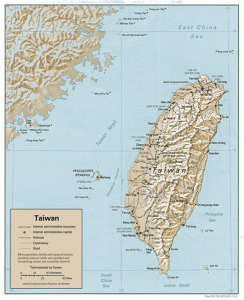The Taiwan Centers for Disease Control (Taiwan CDC) announced today one new case of Japanese encephalitis (JE) in an 80-year-old female who resides in southern Taiwan.

According to the epidemiological investigation, the case had not recently traveled overseas, there are no pig farms or rice paddy fields around the case’s residence, and none of the family members who reside in the same household with the case have developed any suspected symptoms.
So far this year, a cumulative total of 17 cases of Japanese encephalitis, including one death, have been confirmed in Taiwan, including 4 in Changhua County, 3 in Pingtung County, 3 in Tainan City, 2 in Chiayi City, 2 in Kaohsiung City, 1 in Hsinchu County, 1 in Taichung City, and 1 in Yilan County.
Taiwan CDC reminds the public that vector mosquitoes primarily breed in rice paddy fields, ponds and irrigation canals and they are most active during dawn and dusk. Pigs act as the amplifying host for Japanese encephalitis.
Taiwan CDC advises the public to avoid mosquito bites by limiting visits to vector-prone areas such as pig and other animal farms, especially at dawn and dusk when mosquitoes are most active. If, however, visits to vector-prone areas are unavoidable, please wear light-colored clothing, long sleeves and long pants and apply officially approved mosquito repellent to exposed parts of the body to prevent mosquito bites and lower the risk of infection.
Japanese encephalitis (JE) virus is the leading cause of vaccine-preventable encephalitis in Asia and the western Pacific. It is a viral disease transmitted by Culicine mosquitoes.
Most human infections are asymptomatic or result in only mild symptoms. However, a small percentage of infected persons develop inflammation of the brain (encephalitis), with symptoms including sudden onset of headache, high fever, disorientation, coma, tremors and convulsions.
About 1 in 4 cases are fatal. There is no specific treatment for JE. Patient management focuses on supportive care and management of complications. Steps to prevent JE include using personal protective measures to prevent mosquito bites and vaccination. For more infectious disease news and information, visit and “like” the Infectious Disease News Facebook page


2 thoughts on “Taiwan reports 17th human case of Japanese encephalitis this year”